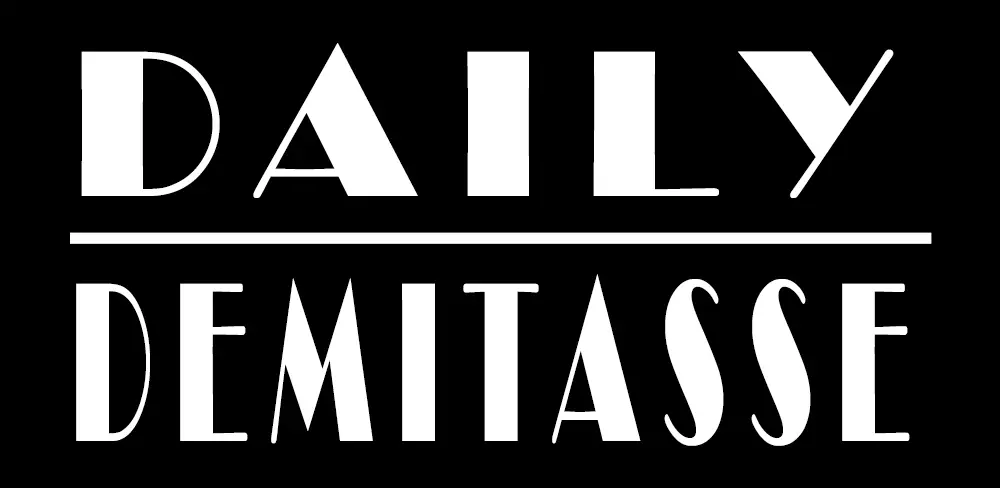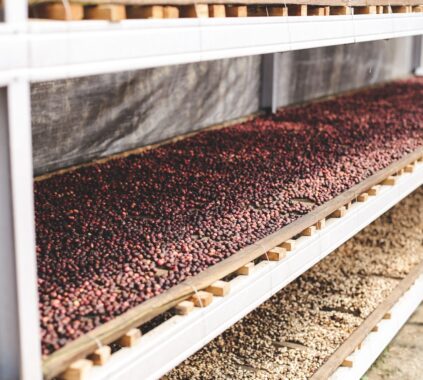If you’re a coffee lover, you may have heard of the Third Wave Movement. This movement is all about elevating coffee to an art form, with a focus on high-quality, sustainably sourced beans and expert brewing techniques. In this guide, we’ll explore the history and culture of specialty coffee, and take a closer look at the Third Wave Movement and what sets it apart from other coffee trends.
Table of Contents
What is Specialty Coffee?
Specialty coffee refers to high-quality coffee beans that are grown in specific regions and carefully roasted to bring out their unique flavors and aromas. These beans are often sourced from small, independent farms that prioritize sustainability and ethical practices. Specialty coffee is typically brewed using precise techniques that highlight the flavors of the beans, rather than masking them with milk or sugar. This focus on quality and craftsmanship is what sets specialty coffee apart from mass-produced coffee.
The third wave movement in specialty coffee has brought even more attention to the art and science of coffee brewing. This movement emphasizes the importance of transparency in the coffee supply chain, from the farmer to the roaster to the barista. It also encourages experimentation with different brewing methods and single-origin beans, as well as a deeper appreciation for the nuances of flavor and aroma in each cup of coffee. Whether you’re a coffee connoisseur or just starting to explore the world of specialty coffee, there’s always something new to discover and appreciate in this vibrant and ever-evolving industry.

The History of Coffee and The Third Wave Movement
The Third Wave Movement is a relatively recent development in the world of specialty coffee, but it builds on a long history of coffee cultivation and consumption. Coffee originated in Ethiopia and spread throughout the Middle East and Europe, eventually making its way to the Americas. In the 20th century, coffee became a commodity crop, with large-scale production and distribution dominating the market. The Third Wave Movement emerged in the 21st century as a response to this mass-produced coffee culture, with a focus on quality, sustainability, and ethical sourcing.
The Third Wave Movement is characterized by a shift in focus from the quantity of coffee produced to the quality of the beans and the experience of drinking coffee. This movement emphasizes the importance of direct relationships between coffee farmers and roasters, as well as the use of specialty brewing methods and equipment. The goal is to highlight the unique flavors and characteristics of each coffee bean, and to create a more sustainable and equitable coffee industry. The Third Wave Movement has gained popularity in recent years, with specialty coffee shops and roasters popping up in cities around the world. As consumers become more interested in the origins and production methods of their coffee, the Third Wave Movement is poised to continue growing and shaping the future of the coffee industry.
The Importance of Sourcing and Roasting Techniques
The Third Wave Movement places a strong emphasis on the sourcing and roasting techniques used to produce specialty coffee. Sourcing involves selecting high-quality beans from specific regions and farms, often with a focus on fair trade and direct trade relationships with growers. Roasting is a delicate process that requires careful attention to temperature, time, and flavor profiles to bring out the unique characteristics of each bean. Third Wave roasters often use lighter roasts to highlight the natural flavors of the beans, rather than the roasty notes that come with darker roasts. This focus on careful sourcing and roasting allows the true flavors of the coffee beans to shine through, creating a more complex and nuanced cup of coffee.

Brewing Methods and Equipment
Third Wave coffee enthusiasts often experiment with a variety of brewing methods and equipment to find the perfect extraction for each type of bean. Some popular methods include pour-over, Aeropress, Chemex, French press, and espresso. Each method has its own unique characteristics and can bring out different flavors and aromas in the coffee. Equipment also plays a significant role in the brewing process, with high-quality grinders and scales ensuring consistent and precise results. Third Wave baristas invest time and effort into perfecting their brewing techniques, in order to create a memorable coffee experience for their customers.

Education and Community
The Third Wave Movement places a strong emphasis on education and community engagement. Specialty coffee shops and roasters often host workshops, cupping sessions, and other events to share their knowledge and passion for coffee with the public. This focus on education helps to build a deeper appreciation for the craftsmanship and skill that goes into producing a great cup of coffee, and fosters a sense of community among coffee enthusiasts. The Third Wave Movement also encourages collaboration and knowledge-sharing within the industry, with coffee professionals working together to advance the craft and push the boundaries of what is possible in the world of specialty coffee.
The Third Wave
The Third Wave Movement has transformed the way we think about and consume coffee, placing a greater emphasis on quality, sustainability, and ethical sourcing. As more and more people discover the world of specialty coffee, the Third Wave Movement continues to grow and evolve, shaping the future of the coffee industry. Whether you’re a seasoned coffee enthusiast or just beginning to explore the world of specialty coffee, the Third Wave Movement offers a wealth of opportunities to learn, experiment, and savor the unique flavors and aromas of this beloved beverage.

Frequently Asked Questions
What is the Third Wave Movement in coffee?
The Third Wave Movement is an approach to coffee that emphasizes quality, sustainability, and ethical sourcing. It focuses on the art and science of coffee, from the selection of high-quality beans to the roasting and brewing processes. The goal is to create a more sustainable and equitable coffee industry while highlighting the unique flavors and characteristics of each coffee bean.
How is specialty coffee different from mass-produced coffee?
Specialty coffee refers to high-quality coffee beans that are grown in specific regions and carefully roasted to bring out their unique flavors and aromas. These beans are often sourced from small, independent farms that prioritize sustainability and ethical practices. Specialty coffee is typically brewed using precise techniques that showcase the flavors of the beans, rather than masking them with milk or sugar. This focus on quality and craftsmanship is what sets specialty coffee apart from mass-produced coffee.
What are some popular Third Wave brewing methods?
Some popular Third Wave brewing methods include pour-over, Aeropress, Chemex, French press, and espresso. Each method has its own unique characteristics and can bring out different flavors and aromas in the coffee. Experimenting with different brewing methods can help you find the perfect extraction for each type of bean.
How can I develop my palate for specialty coffee?
To develop your palate for specialty coffee, start by using all of your senses to fully appreciate the flavors and nuances of each coffee. Smell the coffee, take small sips, and pay attention to the flavors and textures you experience. Try tasting different varieties side by side and experiment with different brewing methods. Don’t be afraid to ask your local barista for recommendations or to share their knowledge about the coffee they serve. With practice and guidance, you’ll be able to appreciate the complex and nuanced world of specialty coffee.
What role do baristas play in the Third Wave Movement?
Baristas play a crucial role in the Third Wave Movement, as they are responsible for preparing and serving the coffee to customers. In Third Wave coffee shops, baristas are often highly trained and knowledgeable about the sourcing, roasting, and brewing techniques used to produce the coffee they serve. They may also be skilled in latte art and other techniques that enhance the presentation and flavor of the coffee. Baristas help to create a welcoming and inclusive atmosphere in Third Wave coffee shops, fostering a sense of community among coffee enthusiasts.
Daily Demitasse is a participant in the Amazon Services LLC Associates Program, an affiliate advertising program designed to provide a means for sites to earn advertising fees by advertising and linking to Amazon.com. We also participate in other affiliate programs which compensate us for referring traffic.













